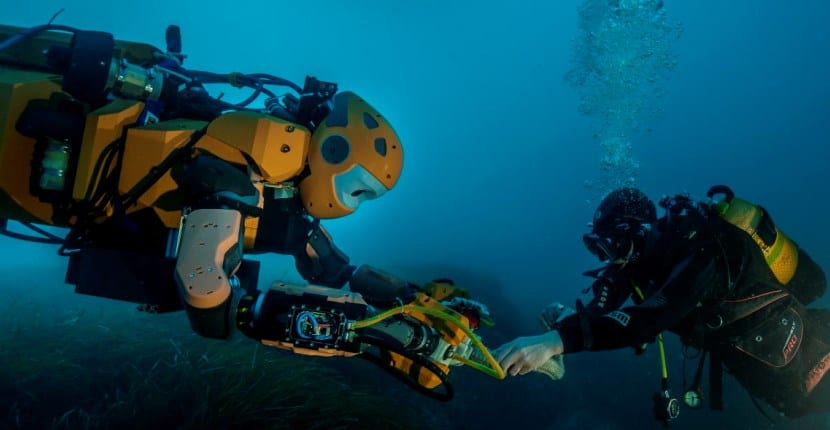
Just a few months ago, the professor Oussama Khatib, for the Stanford University, had the opportunity to lead an expedition that started with the objective of being able to rescue the remains of the ship 'The moon', a ship of Louis XIV that sank back in the XNUMXth century. To carry out this work, instead of using traditional methods, Professor Oussama Khatib decided to develop, together with his team, a humanoid submarine robot that they christened OceanOne.
Among the characteristics that make this robot one of the most interesting options for this type of work, it should be noted that it combines the best of the remotely operated vehicles with the advantages of humanoid robot such as having a hand very similar to a human with which objects can be rescued in a much more natural way for the controller.
OceanOne, a humanoid robot specially designed for underwater exploration.
Thanks to these characteristics, the Stanford University project carried out by Oussama Khatib solves one of the main problems of current submarine robots, which is that, although they have robotic arms, they they usually have very few degrees of freedom, quite the opposite of what the current humanoid robots offer that little by little are being developed.
As a detail, tell you that in order to develop OceanOne, those responsible for the project at Stanford University decided to seek collaboration with one of the most relevant specialized centers of the moment, such as the King Abdullah University of Science and Technology, located in Saudi Arabia.
Further information: IEE Spectrum